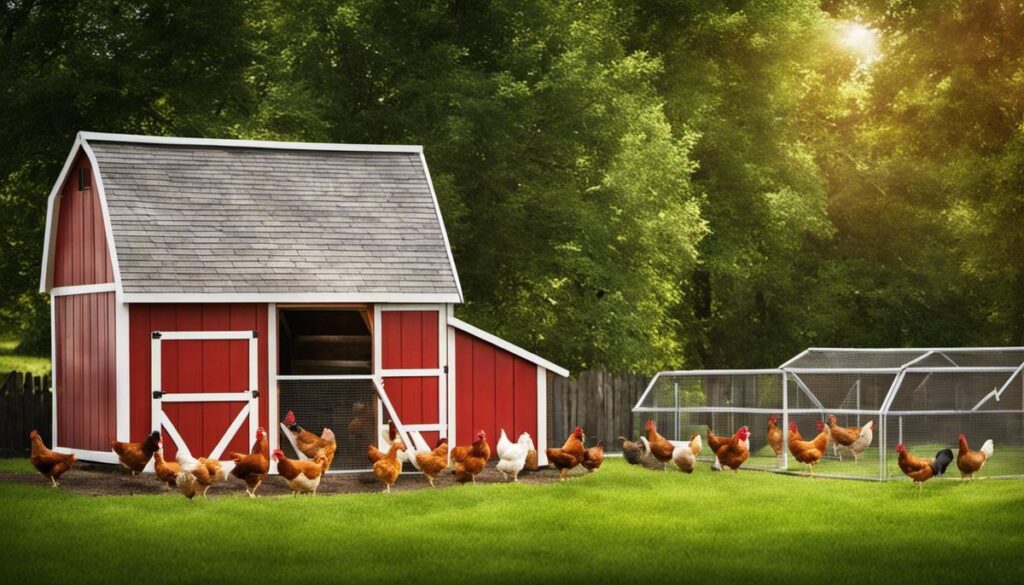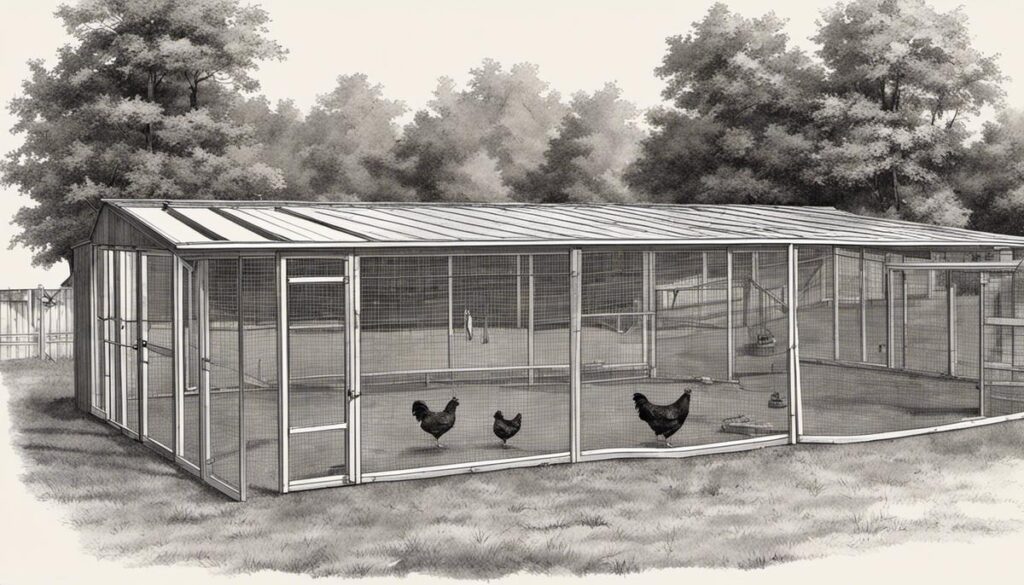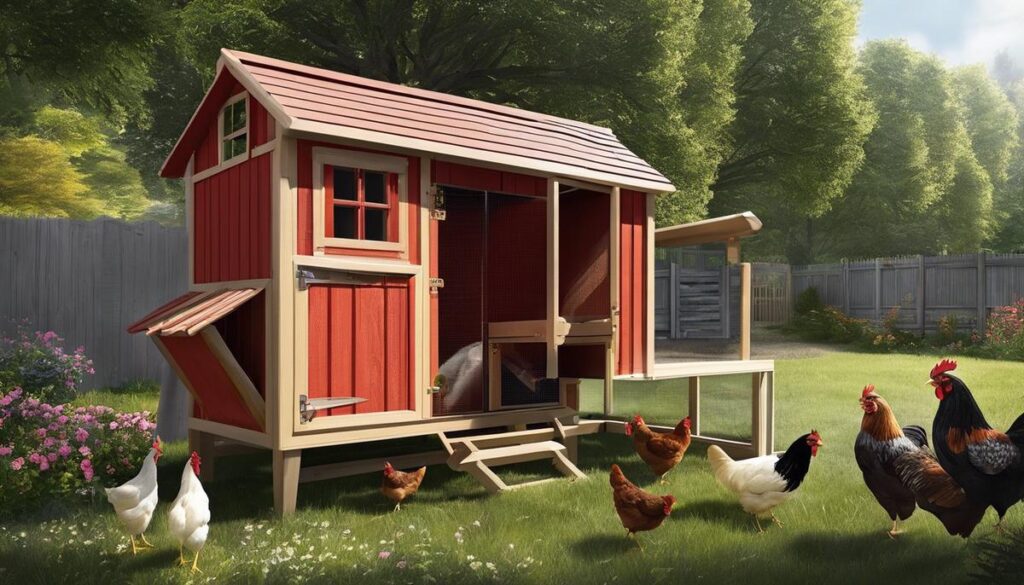When it comes to raising chickens, one crucial aspect you cannot afford to ignore is maintaining and cleaning your chicken coop regularly. Not only does a clean chicken coop factor into the overall health and safety of your chickens but also it impacts their productivity, ensuring high egg yields and reduced disease risks. This article aims to equip you with essential knowledge on the importance of cleanliness in a chicken coop, develop a disciplined approach to setting up a regular cleaning schedule, and offer practical insights on implementing effective cleaning methods.
As you dig into this article, you’ll gain broad and detailed perspectives on cleaning frequency depending on several factors that tie into the welfare of your poultry – such as the size of the coop, the number of chickens, their age, and fluctuating season changes. So you’re probably wondering how often should you be cleaning your chicken coop, let’s read on to get that answer.
We will receive a commission if you purchase through our affiliate link at no extra cost to you. Please read our disclosure policy for more information.
Understanding the importance of a clean chicken coop
Essential Chicken Coop Maintenance: The Whys and Hows
If you’ve chosen to enrich your family lifestyle with the joys of backyard chicken-keeping, you’re in the right place! It’s one of the most gratifying experiences you can give your household cats and dogs aside! But caring for our feathered housemates involves a few important tasks and routines that should be considered love-filled duties rather than burdens. One of the most vital? Ensuring the coop is clean, comfy, and equivalent to a five-star chicken retreat!

Why is cleaning the coop so essential? Simply put, a clean habitat promotes the well-being of your birds, enhancing their productivity and longevity. By staying one step ahead, bird adventurers like yours can easily prevent odor, parasites, or pesky pests, which may cause unnecessary discomfort or illness to your chickens.
A dirty coop is a breeding ground for harmful bacteria and parasites that can negatively affect your chicken’s health. A buildup of droppings can release high levels of ammonia, which can lead to respiratory problems for your flock. Additionally, pests such as mites, lice, and rodents are attracted to dirty coops, posing yet another risk to your chickens’ health.
Regularly cleaning a chicken coop also significantly reduces the chances of egg contamination. If the nests are soiled, the eggs your chickens produce might also be. Cleaning nests in the coop can ensure squeaky-clean eggs that are safe to eat.
So, how often should a chicken coop be cleaned?
Well, “frequent” can be subjective from one chicken-keeper to another. You’ll fast become an expert in understanding the cleaning needs of your specific coop according to your flock size, weather conditions, and coop design. Nevertheless, a good rule of thumb can be to do a general cleanup weekly and a thorough cleaning monthly.
Now, what’s the cleaning process? It’s simpler than you might think! During your general weekly cleanup, remove any droppings or soiled bedding, scrub out water and feeding containers, and replace with fresh bedding. For your monthly thorough cleaning, remove all bedding and nest materials, scrub the coop with soap and water (some chicken-keepers recommend adding a little vinegar to the mix), and let it dry thoroughly before replacing bedding. Oder Free Hemp Bedding.
Remember, your safety is important too! Always wear gloves and a mask during cleaning, and wash your hands thoroughly afterwards.
Keep in mind that small, everyday efforts can lead to big improvements in the overall cleanliness of your coop. Be sure to remove soiled bedding as you notice it, maintain proper ventilation, and always keep water sources clean.
In essence, the nurturing environment of a warm, dry, and clean chicken coop is essential for happy, healthy chickens. It may require dedication, but the reward of clucking contentment and delicious, fresh eggs more than make up for it.
Happy chicken keeping!
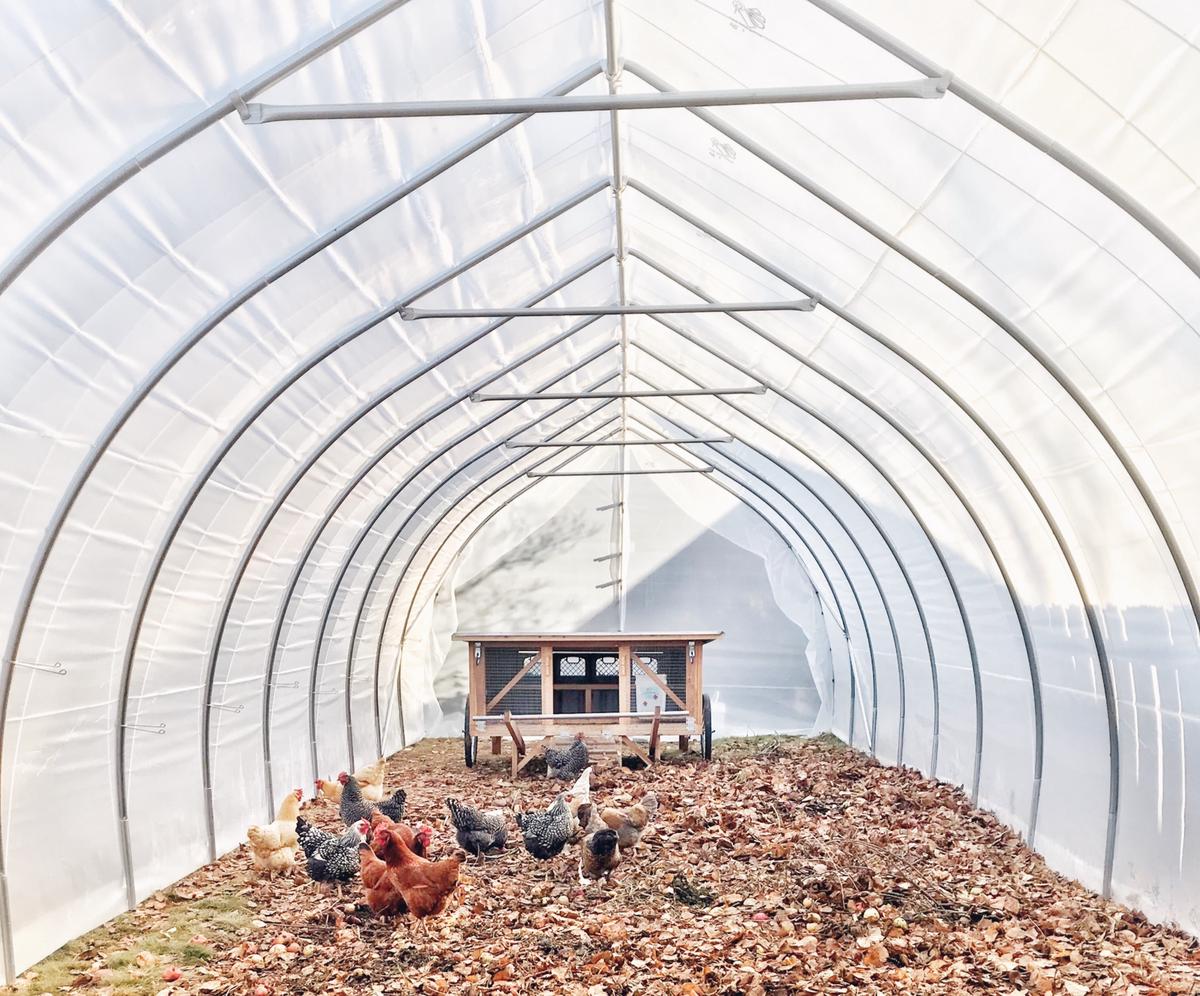
Photo by sophie_mikat on Unsplash
Developing a regular cleaning schedule
The Cleaning Schedule for Your Chicken Coop: Key Factors to Consider
Now that we’ve already highlighted the importance of maintaining a clean chicken coop and how it affects the health and happiness of your chickens, let’s delve further into the factors determining the cleaning schedule. Because as you might have guessed, while everyone agrees on the necessity of cleaning the coop, the frequency can be a subject of debate among poultry enthusiasts.
One crucial factor that needs consideration is the number of chickens in the coop. As a baseline, consider this – the more chickens you have, the faster their coop is likely to get dirty. It’s simple logic – more chickens imply a larger amount of waste, which can accumulate quickly and lead to a soiled coop far faster than a coop housing less number of chickens. So, if you’re raising an extensive flock, you may need to consider cleaning the coop more frequently.
The size of the coop can also influence your cleaning schedule. Undeniably, larger coops take longer to get messy compared to smaller ones. Hence, if your coop is on the more modest size and housing a larger number of chickens, you’d most likely have to clean it more often to ensure hygienic conditions for your chickens.
The Wagon is suitable for up to 5 large hens, and 2 nesting boxes, easy clean drop pans.
Unpredictable elements like weather, particularly in rainy or humid climates, make it essential to clean your coop more frequently. Excessive moisture can create a damp environment, encouraging the growth of harmful bacteria, fungi, and pests. Hence, regular cleaning in such climates can stop the buildup of these unwelcome guests, safeguarding your chickens’ health in term.
Flies
Have you ever walked into your coop and it seems that overnight 100’s of flies hatched, learn how to banish flies from your coop. The secret to your fly control is understanding fly lifecycle. Banish flies from your chicken coop: Practical Guide.
The age of your chickens can also affect how frequently their living quarters need cleaning. Young chicks produce less waste than adult chickens, which means brooders or coops housing young chicks might require less frequent cleaning. However, remember that chicks can be vulnerable. So, it’s crucial to maintain optimal sanitation levels regardless of their size or the amount of waste they generate.
Last but not least, don’t forget to acknowledge the obvious – your chickens won’t shy away from showing signs when they need a cleaner environment. From decreased egg production to anxious behaviors or noticeable smell and flies – if any of these signs appear, it might be time to arm yourself with that cleaning gear.
In conclusion, while an average guideline could be to clean the coop thoroughly every one to two weeks, your cleaning schedule should correlate with your unique circumstances. Be observant, adaptable, and above all, put the health and happiness of your chickens first. After all, a hygienic coop leads to a happy flock and, undeniably, a joyful coop-keeper. Happy Cleaning!
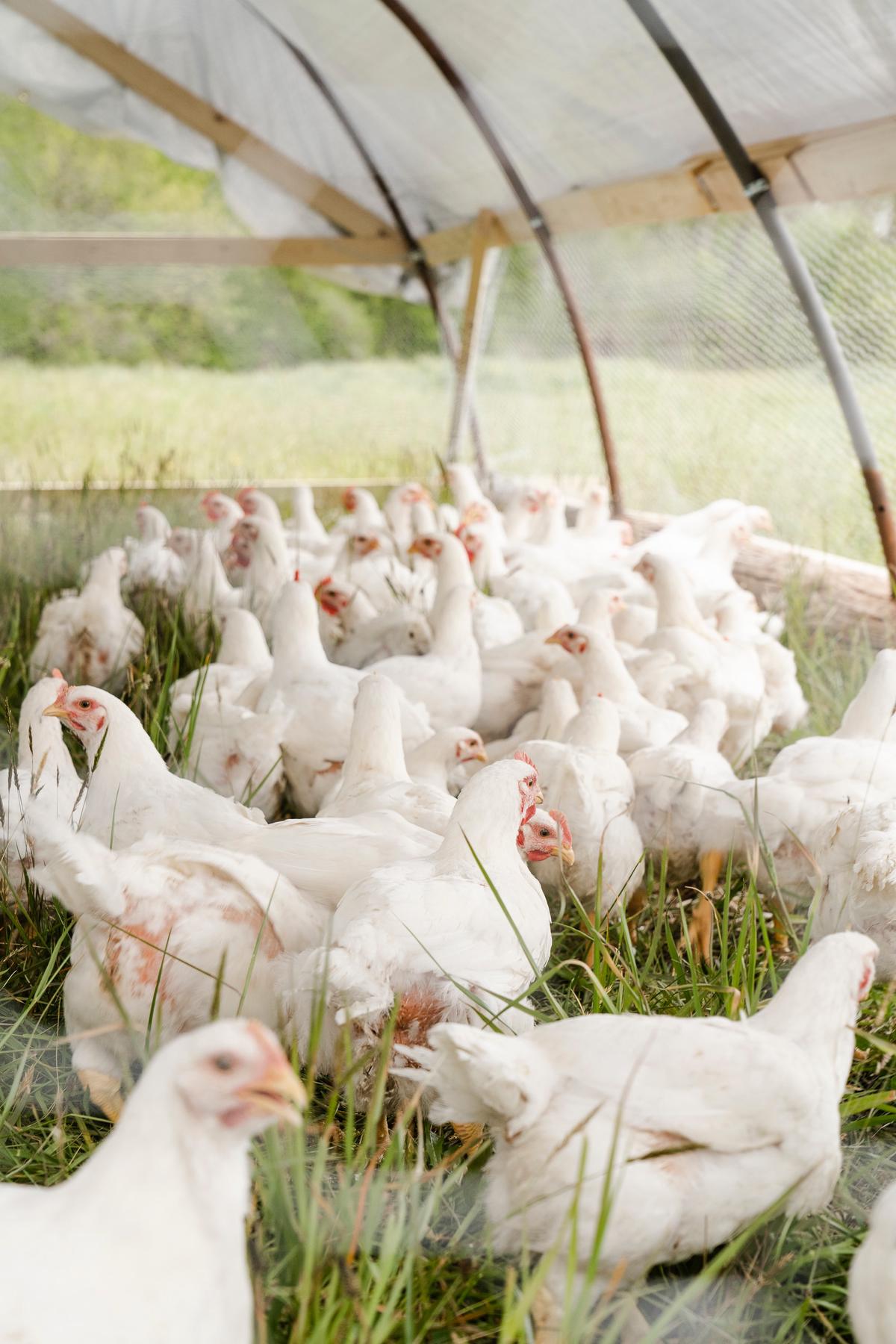
Implementing effective cleaning methods
Whether you’re a seasoned chicken keeper or a fledgling homesteader, when it comes to deep cleaning the chicken coop, there are a few essentials steps and products that make the task manageable and effective. By following these steps closely, your chickens will be clucking with content before you know it! So, let’s get down to it.
First and foremost, ensure you have gathered all the necessary cleaning materials and products. These formulaic must-haves include gloves and mask for protecting yourself, a shovel or pitchfork for removing residual waste and bedding, a scrubbing brush to scour surfaces, a bucket for soapy water, and a garden hose for a final rinse down. Now, let’s talk products. Rely on a pet-safe and bird-friendly disinfectant as well as a pest control product specifically designed for chicken coops.
Before diving into the cleaning process, it’s wise to remove all items from the coop that are easily detachable. This might include perches, feeders, waterers, nesting boxes – basically anything that isn’t bolted down. These items can be cleaned separately, ensuring every nook and cranny is addressed.
Chicken Waste
Next, go ahead and gather up that dirty bedding. This is where your shovel or pitchfork comes in. Any old bedding, manure, or waste needs to be scooped out and discarded properly. Remember: cleanliness is key!
Once the coop is stripped down and the bulk of the waste is removed, it’s time to break out the cleaning products. Using your bird-friendly disinfectant and a scrubbing brush, give the entire coop – floors, walls, ceiling, every surface possible – a good, hearty scrub. Ensure that you don’t skimp on those hard-to-reach places, as bacteria and pests often hide out in these areas!
Rinse the coop well with your garden hose, ensuring all the soap and residue is completely washed away. Once the coop is clean and rinsed out, it’s time to dry it. How? Simple – allow mother nature to do her job. It’s crucial to avoid shutting up the coop while it’s damp or wet to prevent mold and fungus growth.
Whilst the coop is drying, you should clean the removable items. Follow a similar process – scrub them down, rinse, and allow to dry naturally. This meticulous cleaning aids in the prevention of potential health hazards including harmful bacteria or pesky mites.
Safety
Safety is a key component of a chicken owner’s responsibility, and as part of this, applying a thorough pest control product in the coop is highly recommended. Adhere to the specific instructions on your chosen pest control products to ensure effectivity and chicken safety.
Once everything is dry, reintroduce fresh bedding to the coop floors and nesting areas. Now you can safely return the cleaned items, provide fresh water and food, and let your chickens explore their newly freshened environment.
Consider this final tip: place herbs like lavender, mint, or rosemary in the coop after cleaning. These herbs can deter pests, freshen up the coop, and provide a calming atmosphere for your hens.
Keep this guide at hand for your next coop deep-cleaning session. By establishing a routine and diligently addressing each aspect of the coop, chicken owners will be rewarded with a healthier, happier feathered family. Because nothing says “We love our chickens” more than keeping their home clean, safe, and welcoming!
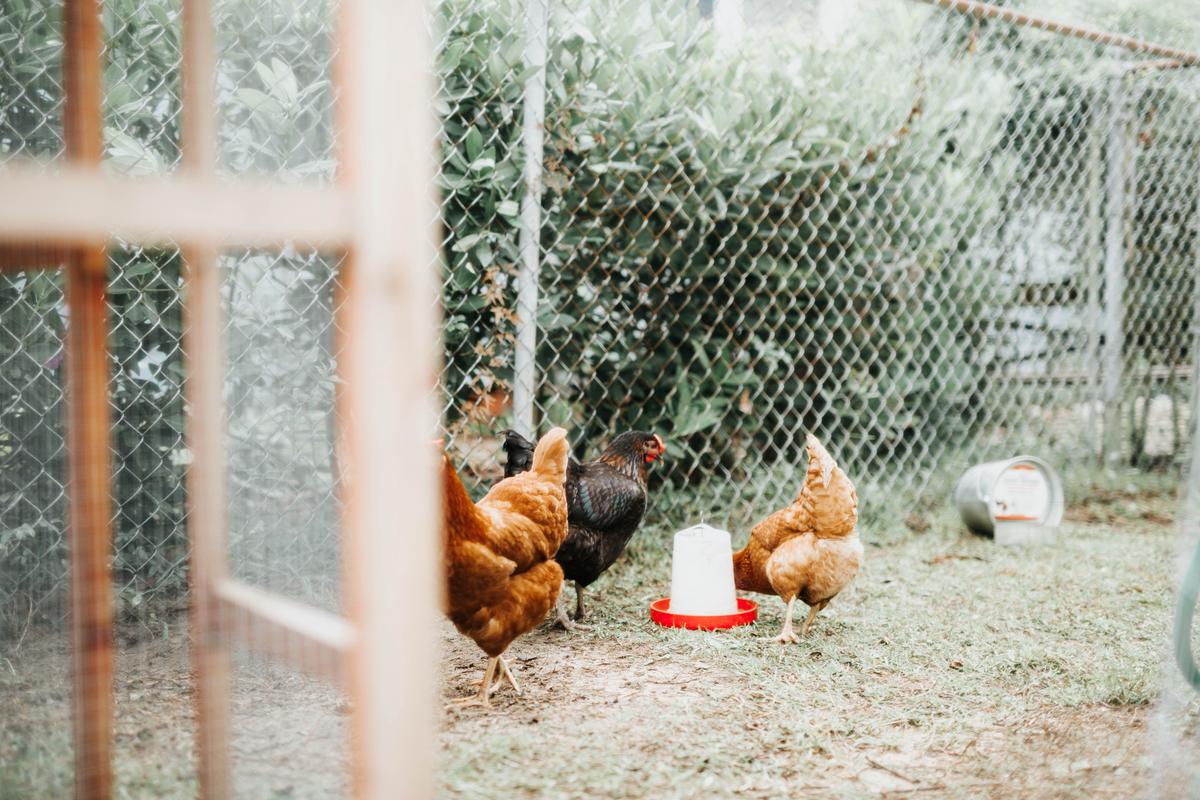
Photo by annietheby on Unsplash
With a clearer understanding of the importance of keeping a clean chicken coop, you are better poised to take care of your chickens’ well-being and productivity. Harnessing an effective method of cleaning, which may include picking the right cleaning materials and training in relevant sanitation practices, can pay dividends in the long run by sustaining a comfortable and healthy environment for your chickens. Remember, it’s not solely about the frequency of the cleaning routine but also about the thoroughness and attention to detail. So, as you align your cleaning schedule keeping in mind the size of the coop, the age, and the number of chickens, rest assured knowing that your enhanced efforts will make a tangible difference in the quality of your poultry raising journey.

